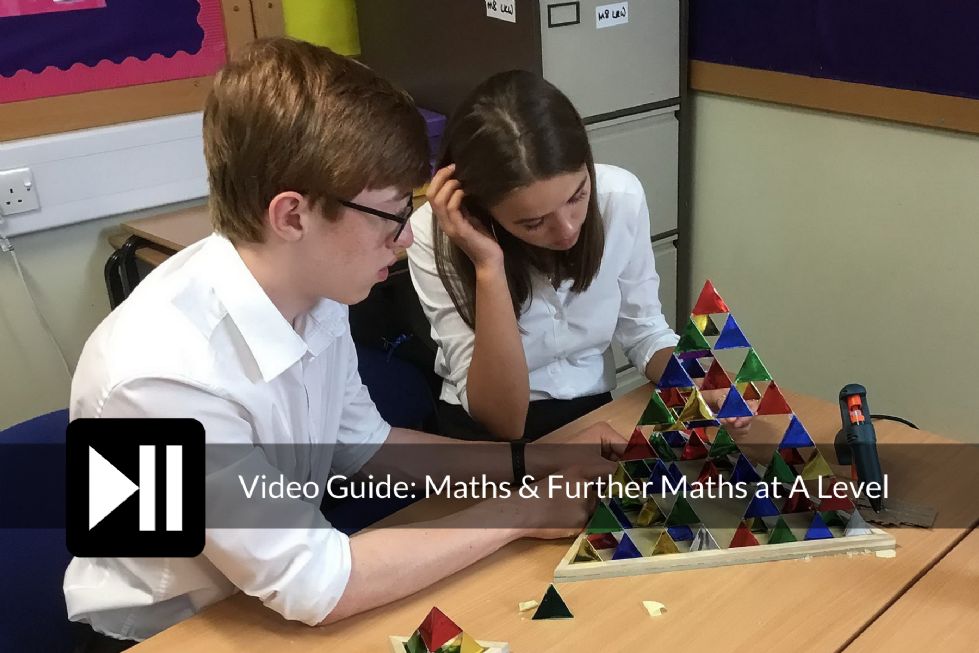Mathematics
Our Mathematics Department is dedicated to helping pupils achieve. We offer a range of qualifications to suit our pupils' abilities so that the least able receive a solid grounding in all aspects of Mathematics while, at the opposite end of the ability spectrum, our most gifted mathematicians are fully stretched. We run a help desk most lunchtimes in the week and in the run up to examinations we are accessible and willing to help throughout the day. We encourage pupils to seek assistance outside lessons and our Fifth and Sixth Formers really appreciate the time we give them to help maximise their potential grades.
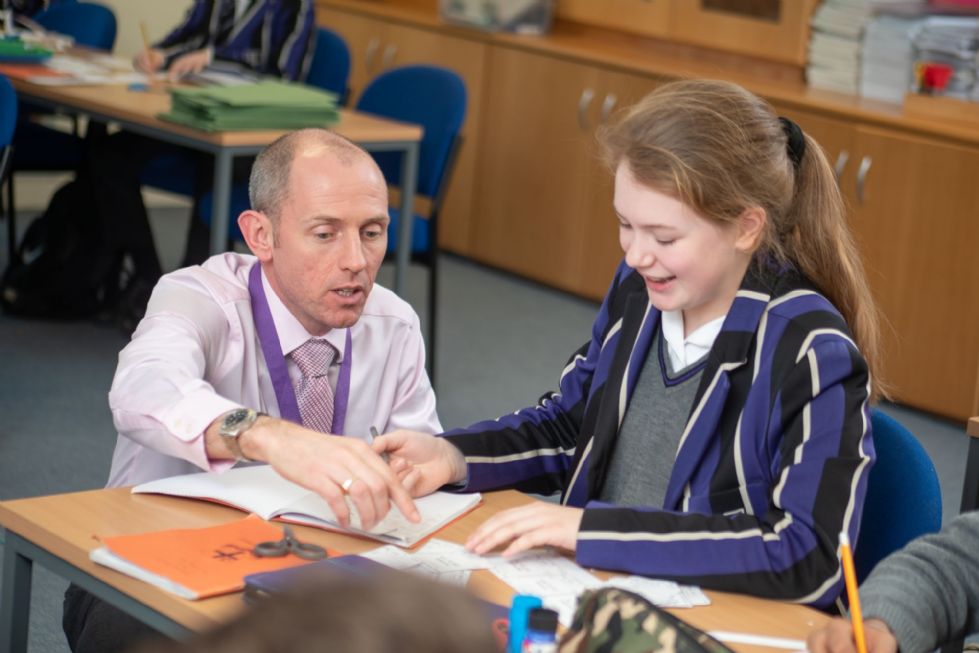
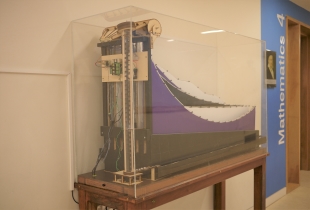
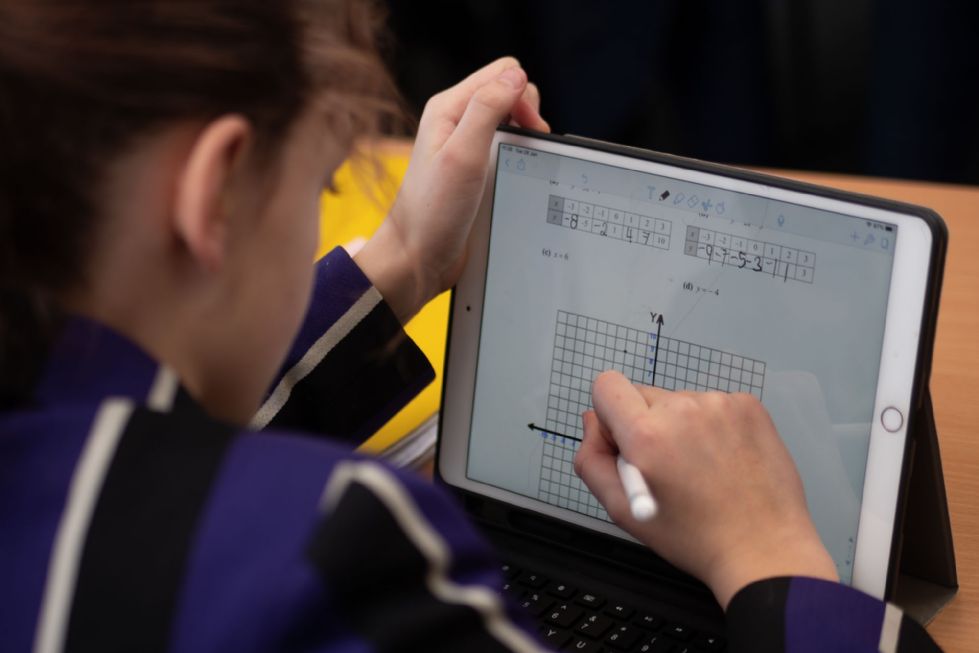
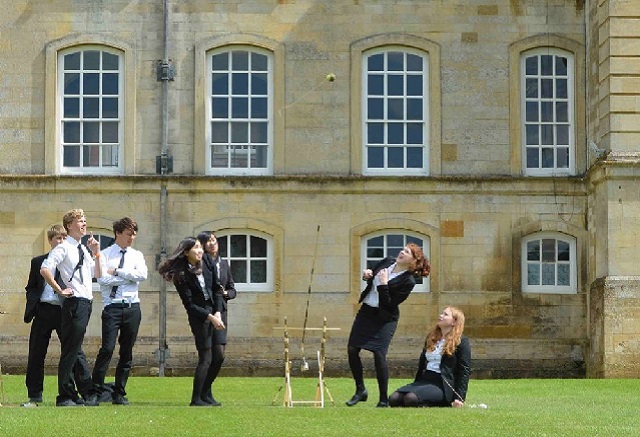
Departmental Staff
Teaching Staff
Curriculum
First to Third Forms – compulsory for all pupils
In the First Form we spend the first half of the first term concentrating on number work. There are several tests on subjects starting with BIDMAS and integer multiplication and progressing to indices, decimals, ratios and percentages.
Initially the new first formers are loosely set according to their entrance exam into. After several mini tests on aspects of numeracy, we re-set the first form after a comprehensive numeracy test set at the end of the Autumn term. Thereafter pupils study algebra and other areas of mathematics. For approximately ½ hour per week from December the pupils will hone their numeracy skills and attempt to pass their internal Bronze, Silver and Gold numeracy awards. For more information on the First Form, see here (pdf).
In the Second Form pupils are set from 1 to 6 but continue to follow a common syllabus. We aim to stretch every pupil and cover more advanced algebra, data handling and reinforce the First Form work. Tests have two sections, the first section is for all classes and the Extension section is aimed at the top couple of sets.
For the Third form module tests are split into 3 Sections: Support, Core, and Extension. This allows us to have a common section of the test for the year group (Core) whilst simultaneously offering challenging questions to the higher sets and appropriate questions for our smaller sets. Each class will do two sections – either S and C or C and E. The S section covers the building blocks of a topic and are based on the material learnt the previous year. The Core section tests the main focus of the topic, building on the S section. The Extension Section is aimed at the ablest pupils in the year group. All tests have questions taken from past examination papers.
Fourth and Fifth Forms – compulsory IGCSE or GCSE subject
- Pearson Edexcel IGCSE Mathematics A (all pupils). Assessed via two exams
- AQA Level 2 Further Mathematics 8365 (pupils in sets 1 and 2). Assessed via two exams
In the Fourth Form our sets 5 and 6 concentrate on the Foundation syllabus and are prepared to take the IGCSE a year early. This is to give every pupil more than one chance of attaining their maths qualification. Pupils who pass early are encouraged to aim for a higher grade at the end of the fifth form.
Sets 3 and 4 in the Fifth Form are prepared for Higher entry where grades 4 and above can be attained. Set 1 is prepared for two qualifications – Maths IGCSE and a Further Maths GCSE equivalent. Set 2 are also encouraged to take the additional qualification, but this is optional for set 2.
More information about Mathematics setting can be found at the bottom of this page (pdf).
Sixth Form – A Level optional subjects
Mathematics is an ever-popular option at Kimbolton, and each year about 1/3 of our Sixth Form take it for A Level. This course builds on GCSE and will help you to develop your algebraic and problem solving skills.
The content of Maths A Level has remained broadly similar for years, however the way in which the questions are asked has become more challenging; you will have to show a deep understanding of all the content to do well. Many of the Pure topics are familiar to GCSE students and A Level extends them considerably. New topics are proof, the binomial expansion, trigonometric identities, integration, radians and logarithms. New Applied topics are correlation and regression, probability distributions and hypothesis testing on the Statistics side, and kinematics and Newton’s Laws of Motion on the Mechanics side.
Homework is an essential part of the course and you are encouraged to take responsibility for your learning at an early stage.
Our best mathematicians have the chance to study four A Levels (Maths, Further Maths, plus two additional subjects). Further Mathematics is probably the most demanding of the A Levels and you should only consider it if you have exceptional ability and passion for the subject and are thinking of a degree with a large mathematical content.
The course is extremely challenging but can be immensely rewarding and satisfying. Unlike Mathematics A Level, where the content is entirely set, only half of this course is compulsory and you can have a say in the other half of what you study. You need to take Core Pure 1 and 2 and then two other modules, typically Further Mechanics 1 and Further Statistics 1.
The topics in the two Core Pure modules include proof by induction, complex numbers, matrices, roots of polynomials, further calculus and advanced vectors. Our Further Mathematicians will have ten taught lessons each week. In the Lower Sixth, five lessons will be focused on the Pure content of the A Level, three on the Applied content and two will be used to start the Further Mathematics A Level, the rest of which will be studied in the Upper Sixth
Beyond the classroom: The UK Mathematics Trust Senior Maths Challenge is an option for all of our Sixth Form Mathematicians. In addition, we often enter team competitions such as The Further Maths Network Senior Team Challenge (a team of four, two each from the Lower and Upper Sixth Forms) and the fast-paced, problem-solving Náboj international mathematics competition.
View our Sixth Form Prospectus
Regular competitions
- Our First and Second Forms all take the UK Mathematics Trust (UKMT) Junior Maths Challenge in April.
- The UKMT Intermediate Maths Challenge is typically sat by the top set in the Third Form and the top two sets in the Fourth and Fifth Forms in .
- The UKMT Senior Maths Challenge is an option for all of our Sixth Form Mathematicians.
- Typically many of our pupils achieve awards and their names are displayed in the maths corridor. A Handful get Gold awards and prizes in assemblies and a couple get invited back to follow on rounds
In addition, we enter team competitions when they are available:
- UKMT Team Maths Challenge - a team of four, two each from First and Second Forms.
- The Further Maths Network Senior Team Challenge - a team of four, two each from the Lower and Upper Sixth Forms.
- The Náboj international mathematics competition
